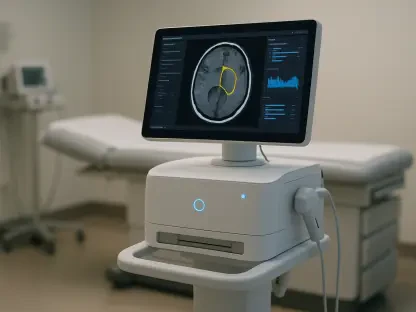As the healthcare sector advances digitally, it faces increasing cybersecurity risks and strict regulatory requirements. This scenario has elevated the importance of Regulatory Technology (RegTech) within the healthcare landscape. Healthcare providers, who manage extensive patient and personal data, find themselves in urgent need of sophisticated tools to help adhere to compliance regulations efficiently. RegTech has thus become indispensable in the industry’s quest to protect sensitive information while meeting compliance mandates. The integration of advanced RegTech solutions is crucial for the industry to address these challenges effectively. The convergence of these technologies ensures that as healthcare continues to evolve, it does so with strong defenses against cyber threats and streamlined compliance processes, ultimately safeguarding patient data and maintaining trust.
Maximizing Cybersecurity in Healthcare
The Rise of Cyberattacks and RegTech Solutions
With a staggering 55% increase in cyber threats plaguing the healthcare industry, RegTech has become an indispensable shield. Such attacks have jeopardized the personal data of over 26 million Americans, underscoring the urgency for robust data protection strategies. As a pivotal tool, RegTech introduces Single Sign-On (SSO) systems to streamline authentication, thereby bolstering security. It advocates for risk-based authentication, ensuring that stringent verifications are in place where they’re most needed. Additionally, RegTech’s annual cybersecurity training equips healthcare personnel with the knowledge to tackle emerging threats, effectively making them the forefront defense against digital dangers. This strategic combination of technology and education through RegTech is essential in safeguarding sensitive health information against relentless cyber incursions.
Data Protection and Compliance
In an era where healthcare is increasingly intertwined with technologies like cloud services, SaaS, and blockchain, safeguarding patient privacy has become paramount. This rise in health-related data use has given birth to RegTech firms, vigilant defenders of health data privacy. These entities stay abreast of the shifting landscape of regulations, supplying healthcare professionals with essential tools designed for compliance with rigorous privacy norms.Key among these instruments is the Data Privacy Impact Assessment. This evaluation is pivotal in pinpointing areas where patient data might be at high risk during collection, utilization, and dissemination processes, ensuring adherence to prevailing legal standards. As the digitalization of healthcare forges ahead, the role of RegTech companies in protecting sensitive patient information continues to gain importance, meshing technology’s potential with the imperatives of confidentiality and regulatory obedience.
Combating Fraud with RegTech
Addressing Healthcare Fraud
Healthcare fraud poses a major issue in the industry, highlighted by the National Money Laundering Risk Assessment’s focus on curbing it. Innovative RegTech startups are at the forefront of tackling this challenge, developing advanced technologies for combatting financial crimes. Their sophisticated tools encompass Anti-Money Laundering (AML), Know Your Customer (KYC), and specialized anti-fraud detection capabilities. These systems are not just reactive; they proactively forecast potential fraudulent patterns, which allows the healthcare sector to take preventative action. By deploying these cutting-edge solutions, the industry stands to protect billions of dollars from falling into the hands of fraudsters, ensuring Medicare funds are safeguarded for legitimate use. The integration of such technology is pivotal, as it serves as a deterrent against the exploitation of healthcare systems and protects the financial integrity of healthcare provision.
Predictive Analytics and Financial Security
The innovative use of predictive analytics in RegTech serves a dual purpose—it offers tailored healthcare options while safeguarding the financial interests of both providers and patients. By utilizing vast databases, RegTech tools are able to recommend Medigap Insurance plans that are closely aligned with patients’ health profiles and financial capabilities. This synergy of predictive analytics with RegTech not only promotes better health outcomes but also addresses concerns about affordability and fraud.In summary, the use of RegTech in the healthcare industry is pivotal as it undergoes continuous evolution. This cutting-edge technology ensures a stable, efficient, and secure future by enabling healthcare providers to maintain high standards of regulatory compliance and protect against a variety of risks. As the industry embraces digitization, RegTech stands as a formidable ally, equipped to tackle both current and prospective challenges.









